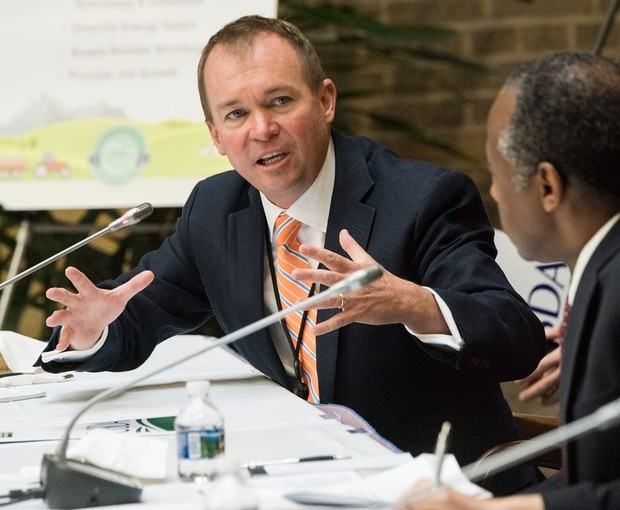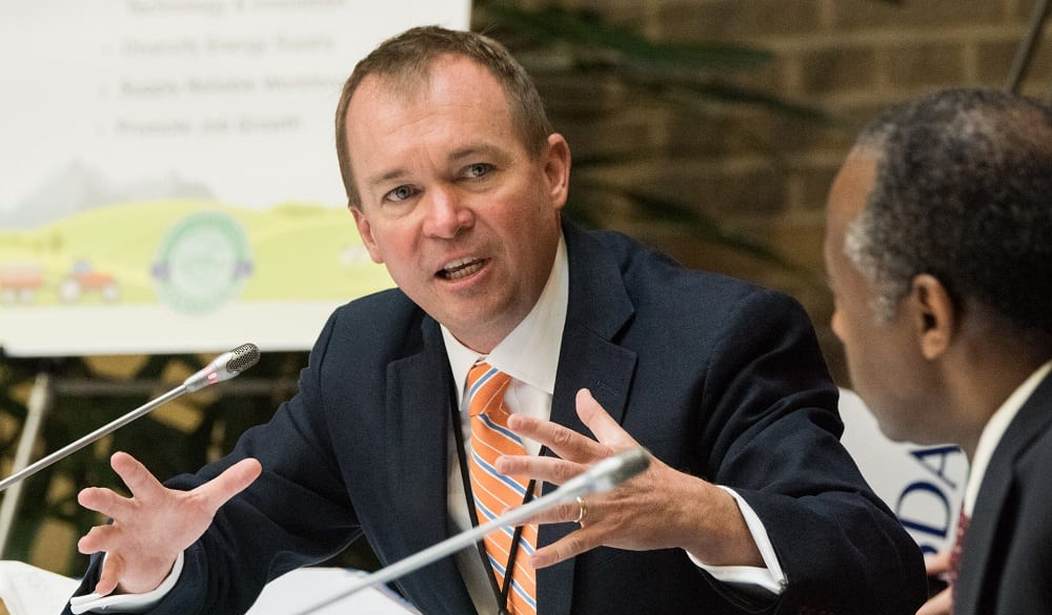
Image by Department of Agriculture via Flickr Creative Commons https://www.flickr.com/photos/usdagov/
Even though the Trump administration lost a round in the Fourth Circuit yesterday in a case that could have totally dismantled the unconstitutional Consumer Financial Protection Bureau, acting director Mick Mulvaney is still on the job.
The Trump administration has stripped enforcement powers away from the Consumer Financial Protection Bureau office that specializes in pursuing cases against financial firms accused of breaking discrimination laws, according to two people familiar with the matter and emails reviewed by The Washington Post.
The move comes about two months after President Trump installed his budget chief, Mick Mulvaney, at the head of an agency that has long been in the crosshairs of Republicans. The Office of Fair Lending and Equal Opportunity had placed penalties on lenders that it said had systematically imposed interest rates on minorities that were higher than those for whites.
Now that office, which had been part a powerful CFPB division, will move inside the office of director, where staffers will be focused on “advocacy, coordination and education,” according to an email Mulvaney sent them this week. They will no longer have responsibility for enforcement and day-to-day oversight of companies, he said.
…
Beyond moving the Office of Fair Lending, Mulvaney has also dropped lawsuits against payday lenders and said the agency would reconsider aggressive rules the industry complained would cripple it. In a memo to the staff last week, Mulvaney said the CFPB would no longer attempt to “push the envelope” in enforcement cases. “We are government employees,” he said. “We don’t just work for the government, we work for the people: those who use credit cards and those who provide them.”Critics say these moves collectively could hobble an agency created after the global financial crisis to protect consumers against the financial industry.
“If you remove enforcement power from an office, you are essentially gutting its power,” said Vanita Gupta, head of the civil rights division at the Justice Department during the Obama administration. “What we’re seeing in this move is a push to erode the federal civil rights machinery.”
This is the problem in a nutshell:
This message below from Mick Mulvaney to CFPB employees is nuts.
Yes, Justice is blindfolded; that's how the JUSTICE Department works.
Mulvaney is running the CONSUMER Protection Bureau. It's not neutral; it's supposed to PROTECT CONSUMERS. pic.twitter.com/9nmCB9HVQK
— Ronald Klain (@RonaldKlain) January 23, 2018
You have an agency that can operation with zero oversight from anyone. It creates its own budget independent of Congress. It makes rules that are legally enforceable. It imposes fines. And it is staffed by anti-business advocates who think that unless they have the ability to levy fines that they have no useful function. And they might be right. But that doesn’t make a case for giving them enforcement power so much as it makes a case for disbanding them.












Join the conversation as a VIP Member